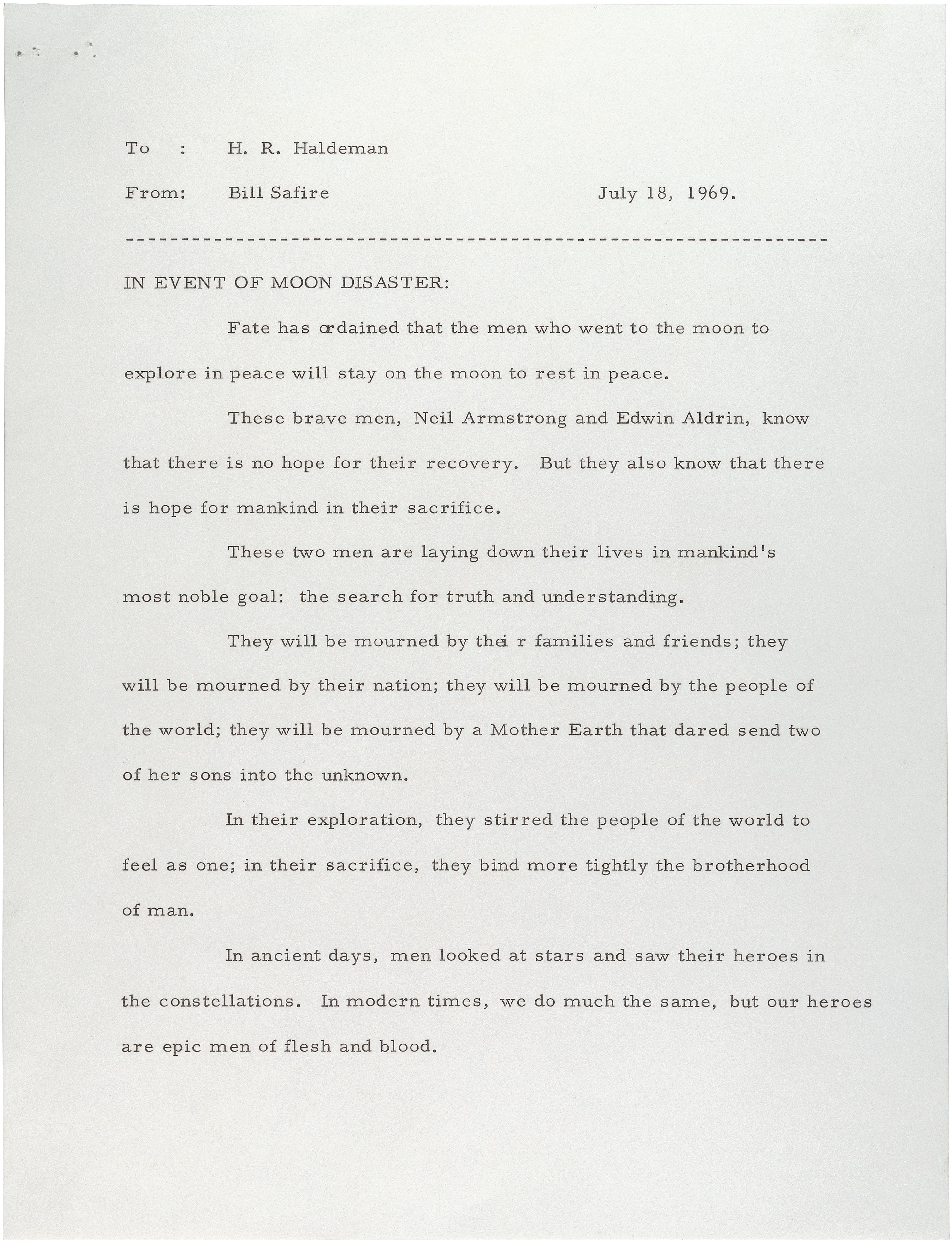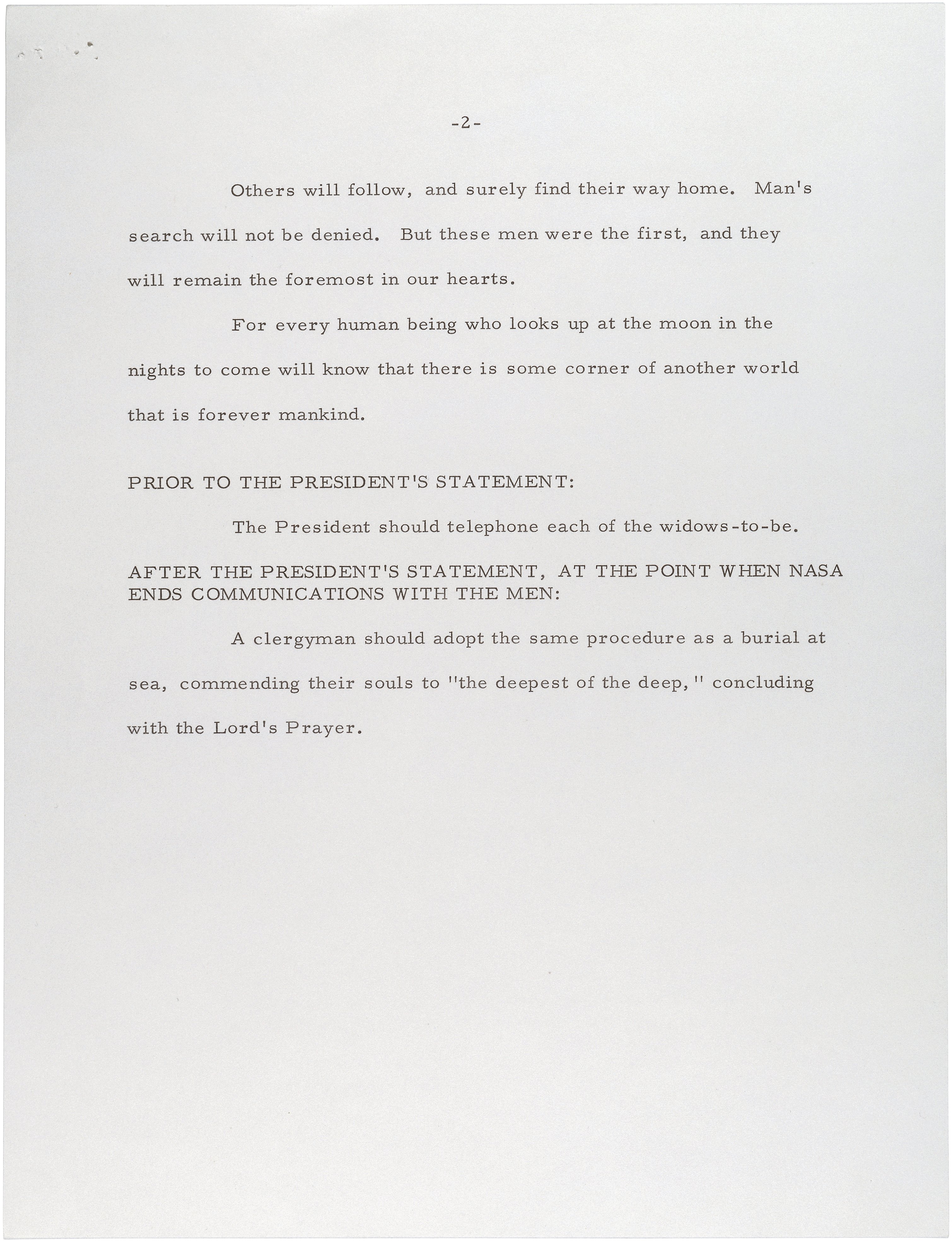When I lead discussion sections as a Teaching Assistant at UMass, I try as often as I can to bring up the notion of historical contingency. I think it’s important that we keep in mind, all of us, that the world looks and works
 as it does in large part because of the collected decisions of many people over many years. But history has a weight to it, and when we learn it as children and young adults it can acquire an inertia that feels like determinism: things are the way they are because they couldn’t have been any other way, right?
as it does in large part because of the collected decisions of many people over many years. But history has a weight to it, and when we learn it as children and young adults it can acquire an inertia that feels like determinism: things are the way they are because they couldn’t have been any other way, right?Every once in a while, a historical document is
Below is a July, 1969, memo titled 'IN EVENT OF MOON DISASTER' written by then-speechwriter William Safire to Richard Nixon's Chief of Staff, H. R. Haldeman. The memo was penned two days before the first manned moon landing. It was meant to be read by Nixon as a public statement in the event that astronauts Neil Armstrong and Buzz Aldrin were somehow stranded on the moon during the Apollo 11 mission and consigned to perish, as the statement reads, in “the deepest of the deep.”


Images courtesy of the National Archives and hat tip to the fantastic blog Letters of Note. Click images to enlarge.







